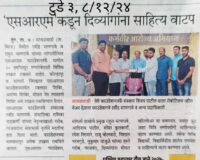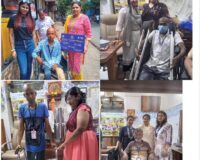Understanding Rhabdomyosarcoma:
Rhabdomyosarcoma, often abbreviated as RMS, is a rare type of cancer that primarily affects children and adolescents. It originates in the soft tissues of the body, particularly in the muscles attached to bones or in hollow organs such as the bladder or uterus. This type of cancer arises from cells that normally develop into skeletal muscles, which are the muscles that we use to move our bodies.
Causes and Risk Factors:
The exact cause of Rhabdomyosarcoma is still unknown. However, certain genetic factors and environmental influences may contribute to its development. Children with certain genetic syndromes, such as Li-Fraumeni syndrome or Neurofibromatosis type 1, may have an increased risk of developing RMS. Additionally, exposure to radiation or certain chemicals during pregnancy may also increase the risk.
Symptoms:
The symptoms of Rhabdomyosarcoma can vary depending on the location and size of the tumor. Common signs may include:
- Swelling or a lump that may be painful
- Pain or tenderness in the affected area
- Difficulty moving or using affected muscles
- Changes in bowel or bladder habits if the tumor affects the abdomen or pelvis
- Bleeding from the nose, throat, or other areas if the tumor is in the head or neck region
Diagnosis and Treatment:
Diagnosing Rhabdomyosarcoma typically involves a combination of imaging tests, such as MRI or CT scans, and biopsy to examine a sample of the tumor tissue under a microscope. Treatment usually involves a multidisciplinary approach, including surgery, chemotherapy, and radiation therapy. The specific treatment plan will depend on factors such as the location and stage of the cancer, as well as the patient’s overall health and age.
Support and Resources:
Facing a diagnosis of Rhabdomyosarcoma can be overwhelming for patients and their families. However, there are numerous resources available to provide support and guidance throughout the treatment journey. Organizations like SRM Foundation offer assistance to needy cancer patients, providing financial support, counseling services, and access to information about treatment options and clinical trials.
Conclusion:
Rhabdomyosarcoma is a challenging disease, but with advances in medical research and ongoing support from organizations like SRM Foundation, there is hope for improved outcomes and better quality of life for patients battling this rare form of cancer.



